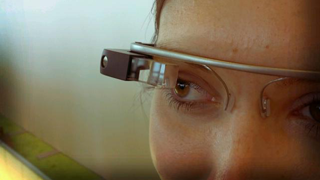
Wearable computing has taken headlines by storm recently; from wrist-based such as the Kickstarter-success Pebble, to those sitting on your nose like Google’s Glass. Amid concerns and “fashion” issues; many wondered whether these devices would take off, alongside privacy concerns.
Well it looks like it will, it looks like it will be big, and due to the popularity we’re left thinking how it could be great for some innovative marketing.
According to a new report by Forrester – 21.6 million U.S. online consumers, or 12 percent of the population; would consider augmented reality glasses as long if they were from a trusted brand.
There are three quite obvious issues to overcome here.
Firstly, Google may not be considered a “trusted brand” as it’s recognisable, but as a search and advertising company. Whilst this could have clear benefits for marketing purposes; consumers could be worried about the potential for abuse.
Secondly, privacy concerns; having a device with a camera on your face speaks for itself.
Thirdly, and perhaps most importantly, whether the augmented reality experiences are actually worth it. Previous attempts have been less than successful and struggle to gain decent adoption.
A notable supporter is Robert Scoble, a popular American journalist who reports it “changed his life” and “he will never live another day without it.” Quite how much Scoble was paid to be such a sterling advocate I’m unsure, but it does seem to be the general consensus.
So it looks like Google are on to a winner in the market themselves; but how can we exploit the device for our own purposes?
It’s not clear yet whether the device will be as open and unrestricted (doubtful) as Google’s Android OS for smartphones, but applications which could display animated billboards could be a potential implementation, or location-based vouchers for nearby businesses.
Already Google has banned adult apps from the device; indicating Mountain View could be taking a more restrictive Apple-like approach to their Glass App Store.
However, the company does already allow “rooting” of their specs…
Due to the amount of people who could potentially be wearing the device, do you have any interesting marketing ideas for its usage?





